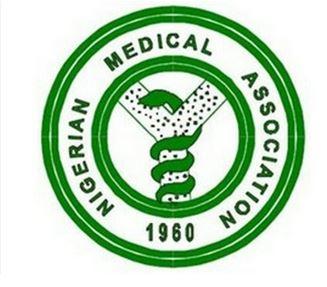
By Chioma Obinna
Troubled by the $2 billion annual capital flight Nigerians spend on medical tourism, the Nigerian Medical Association, NMA, and other partners yesterday in Lagos mapped out strategies, including the adoption of public-private partnerships, to reverse the trend.
They agreed that the adoption of public-private partnerships, PPP, in the health sector would enhance sustainability and efficiency.
According to the NMA, annually, many Nigerians travel to countries such as India, the UK and the USA, in search of medical care.
The financial toll of these trips, according to NMA and its partners, has long been a concern for the stakeholders and has contributed to the erosion of the nation’s foreign reserves.
In his submission, NMA president, Prof. Bala Audu, at the association’s healthcare & medical expo, titled “Enhancing sustainability and efficiency in Nigeria’s private health sector in the quest to reverse medical tourism”, said globally, the healthcare industry was worth over $12 trillion, and would expand to $18 trillion by 2028, with Nigeria having a whopping $6 billion of this share.
Audu, who noted that ironically, Nigeria remained the leading exporter of health professionals globally, said: “The global market for medical tourism exceeds $100 billion, and it is expected to reach $180 billion by 2030, with Nigeria contributing to this as an exporter of patients with an annual capital flight of over $2 billion to medical tourism. This is predicted to get worse unless we intervene as a nation.”
He explained that the situation was predicted to get worse unless an intervention was done as a nation.
The NMA president also noted that while the global market for medical tourism was expected to reach $180billion by 2030, Nigeria contributes as an exporter of patients with an annual flight of capital of over $2billion to medical tourism.
He said the situation informed the decision to take steps to help the country reverse medical tourism, so Nigerians would not have to travel out to seek health care.
“Part of our recommendations is the need for the government to review the remuneration of health workers, put in place workplace security, as well as equipment that will enable doctors to function most effectively.
”The current challenges we are having are because those who have decided to remain behind are trying their best to ensure that they deliver the same quality of healthcare that is being provided, even before those who have left this country.
”Therefore, there’s a lot of burnout; there’s a lot of excess workload, and that is why we are going to have, for a while, over-congestion in our hospitals because there are a limited number of health professionals to provide these services. We hope if we can reverse the brain drain into a brain gain, this trend will be solved.”
“Nigeria has great hospitals, especially in the private health sector. One of the reasons for this expo is to bring out the competencies that are available in this country. We want to show Nigerians that are leaving the country to seek medical care abroad that what they are seeking abroad is available within the country,” he said.
In his remarks, Lagos State Commissioner for Health, Prof Akin Abayomi, disclosed that the state has a hospital bed deficit of about 66,288 beds, with a total of 34,995 hospital beds in the private sector and 3,717 in the public sector, adding that to close this gap, the state would need at least 66 general hospitals.
Disclaimer
Comments expressed here do not reflect the opinions of Vanguard newspapers or any employee thereof.